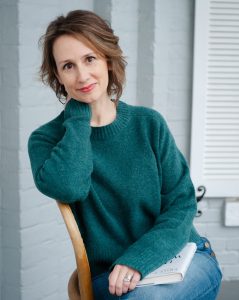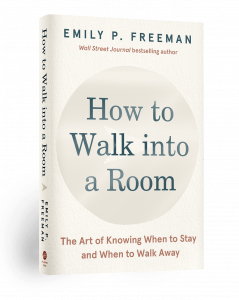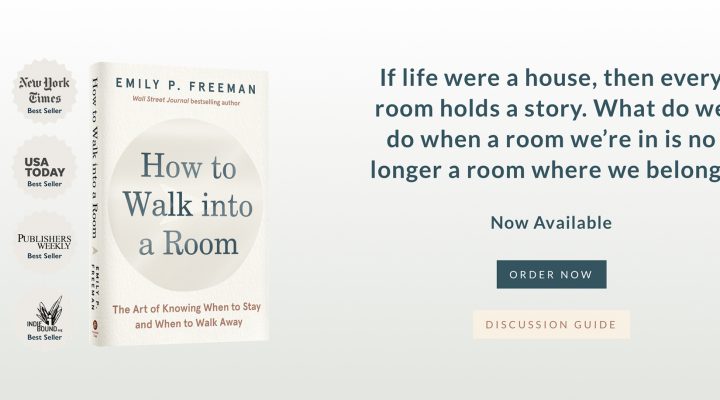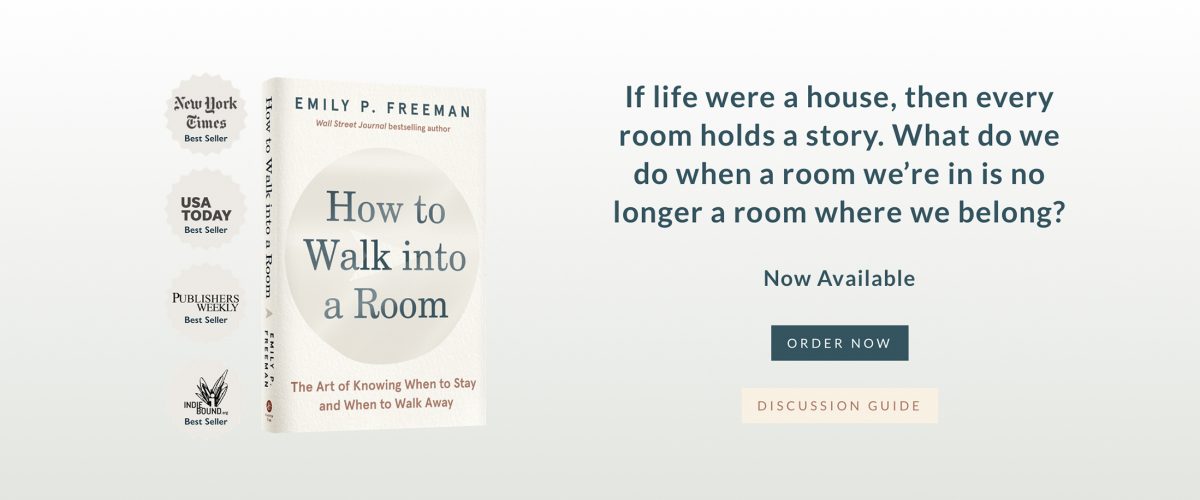Emily Freeman is a household name who not only gives advice but offers solutions on her The Next Right Thing podcast, along with her bestselling books.
Although Freeman doesn’t see herself as a minister, more of a spiritual director, she holds a degree in spiritual formation and her words seem to line up what many in her generation are looking for. In her new book, How to Walk into A Room, Freeman plays out what began as a single episode podcast that kept growing.
“I did a podcast episode kind of about this topic, and I thought it was one episode, and it was kind of about leaving a space that I had previously felt comfortable in but was starting to realize maybe it was time to make a change,” she explained. “And I did one episode. The response of that episode, along with the emails and the messages I got, pointed me in the direction to explore the topic more, which would lead to me writing a book about it.”

Emily Freeman
Freeman discovered in her research that many of her audience members were trying to navigate not only leaving spaces, jobs and churches but how to know what spaces to walk into while leaving behind any baggage they may have had from the last place they were.
“I kind of had that ingrained in me that when you start something, you finish it and you see it through to completion — which, maybe when you’re on a team that may be a good thing,” she said. “There are some times in life where there is such a thing as a healthy human rhythm of finding new rooms for us in different seasons of our lives. … A lot of us are comfortable, especially in the church, because the church is beloved. And it might be a place where we were born into, we grew up there and we have our family there, and we have our connections there, there’s a lot of fear to exploring a different space, so there may be some discomfort to stepping into something new.”
However, Freeman believes people must lean into that kind of discomfort when leaving and when walking into a new room.
“One thing I learned about me is that I can trust my own voice, and I’ll clarify that to say, not to the exclusion of other voices, not myself and me alone,” she said. “I realized that in writing my own story and in reflecting on the stories of others, I can trust my voice in partnership with God, in partnership with people I know and love as I question changes I might want to make, so I can be a voice at the table along with other people too. That’s the big thing I learned while writing this book.”
Freeman suggests a model based on the word PRAY: “Point and call by asking your self some questions. Remember your path by looking back to where you have been. Acknowledge presence on where you can seek wisdom from. Yield to the arrows by asking yourself what is the next big thing.”
Freeman wants her audience to know she is walking this journey with them.
 “I raised my hand for this work,” she said. “I think especially when you’re writing in a faith space and writing about something that’s personal, that can be scary, and it can hurt because you’re challenged to live out what you’re writing. You’re challenged to be honest about where you are. I’m not done yet. Everything I’m writing is in process, which can be a vulnerable thing. I am wanting to share things from where I sit today and hope that maybe that resonates with someone else.”
“I raised my hand for this work,” she said. “I think especially when you’re writing in a faith space and writing about something that’s personal, that can be scary, and it can hurt because you’re challenged to live out what you’re writing. You’re challenged to be honest about where you are. I’m not done yet. Everything I’m writing is in process, which can be a vulnerable thing. I am wanting to share things from where I sit today and hope that maybe that resonates with someone else.”
This authenticity resonates with her readers and listeners.
She makes clear it is not easy to leave one space and walk into a new space. It takes courage.
“It’s starts with true belief that although we may know what we are leaving behind, we do not always know what waits for us and that what waits is something — something new is always waiting. We just might not know exactly what it is because the reality is we know what we’re leaving. And even if it’s just mediocre, at least it’s familiar. We know it. I think it does start with some courage and it starts with a fair amount of trust in knowing that I’m not walking forward into these new spaces all by myself.”
She adds: “I’m a strong believer that reflection is not an event, it’s a lifestyle. Having a regular practice of reflecting on life: What’s life giving? What’s life draining? Where have I seen God lately? Where do I feel connected? Where do I feel disconnected? I ask myself those questions on a regular basis.
“And I do think that does allow for us to become more self-aware when we’re asking questions like that on the regular. A book is a moment in time and so, the best we can do, is what we can do with what we have right now.”


